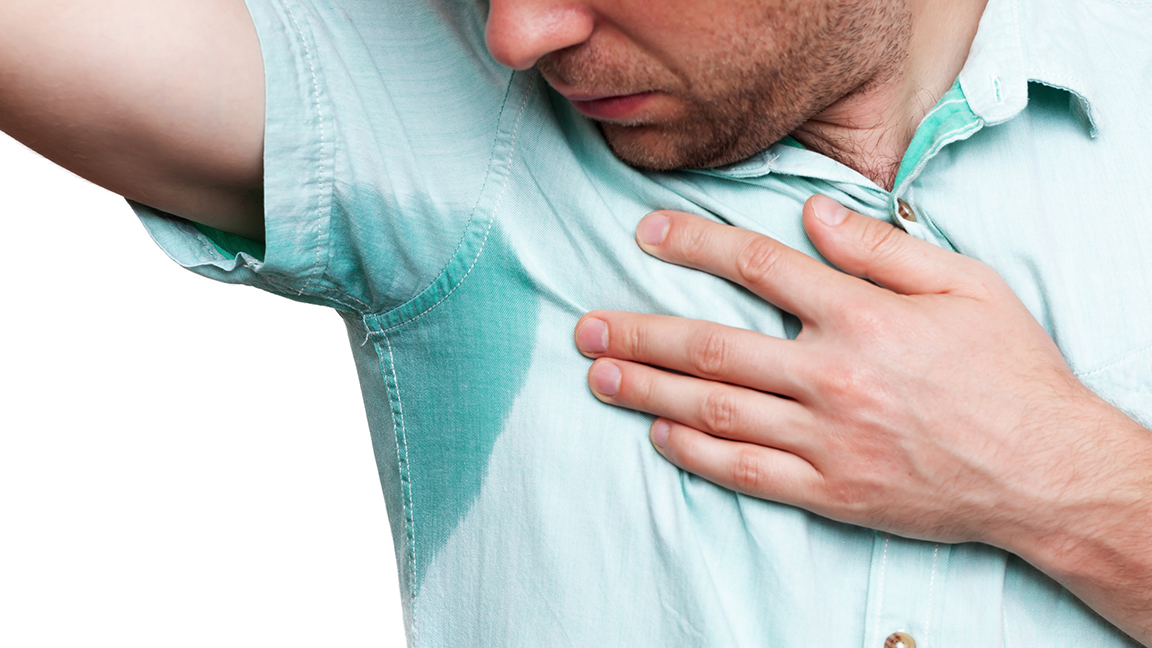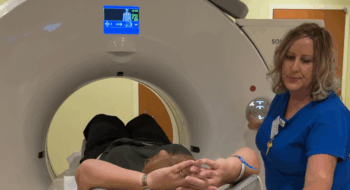If you suffer from excessive sweating, you aren’t alone.
Excessive sweating, or hyperhidrosis, affects about 3 percent of the population in the United States, and there are two major types of the condition, says Dr. James Turek, a family physician with Tidelands Health Family Medicine at Garden City.
Most common is the inherited version, which isn’t caused by a medical condition. This form of excessive sweating, in which a person sweats about five times more than an unaffected person, begins in childhood and continues into adulthood. The sweating is most common when a person is awake.
The second form of hyperhidrosis is caused by one of many medical conditions and is characterized by excessive sweating while asleep, Dr. Turek says. It can be caused by excessive drinking, anxiety, diabetes, spinal cord injury, thyroid disease, heart disease, obesity and other conditions, the doctor says.
Enjoying this story? It’s free to republish. Learn more.
Whether due to genetics or a medical condition, hyperhidrosis can be a serious quality-of-life concern among patients, some of whom go to great lengths to avoid embarrassment, Dr. Turek says.
“Everybody is their own worst enemy,” Dr. Turek says. “It’s one of those things where, when you have that problem, it’s in your mind and you think everybody is noticing it.”
Most people find ways to navigate around their overproduction of perspiration. Despite the claim that some shirts are “moisture-wicking,” Dr. Turek says many patients use Kleenex to absorb moisture in their underarms or frequently change clothes to avoid wet armpits.
“They might change their clothes at work because it (the sweat) bleeds through, or they might, if they’re getting their picture taken for formal photos, wait until the last minute to put on a gown, and then take it off right away to avoid ruining it,” Dr. Turek says.
The location of sweat overproduction can vary by person, with some people having wetter feet and underarms and others having moister palms or faces.
Dr. Turek says the most common sites he sees are the underarms and the face, followed by hands and feet.
Some prevailing theories, which still need to be more rigorously tested and researched, posit that people with excessive sweating might have too much of a neurotransmitter involved in perspiration, Dr. Turek says.
People who suffer from hyperhidrosis should discuss the symptoms with his or her primary care provider, who can evaluate the cause and suggest an appropriate course of treatment, Dr. Turek says.
One option to control sweating is prescription-strength antiperspirants, which can be used almost anywhere on your body, including your palms and feet, Dr. Turek says.
Some patients may ultimately be referred to a dermatologist for more specialized treatment, Dr. Turek says, that can inactivate or destroy the glands that produce the sweat.
“The most important thing is for people to realize they aren’t the only ones with this issue, and to discuss it with their physician,” Dr. Turek says. “We’re here to help.”

Dr. James Turek
Family Medicine Physician, Tidelands Health Family Medicine at Garden City
Bio
Dr. James Turek is a family medicine physician who practices at Tidelands Health Family Medicine at Garden City.
Learn MoreMedical Education
Education
Uniformed Services University of the Health Sciences
Internship
Wilford Hall USAF Medical Center
Meet the Expert
Dr. James Turek
Dr. James Turek is a family medicine physician who practices at Tidelands Health Family Medicine at Garden City.





